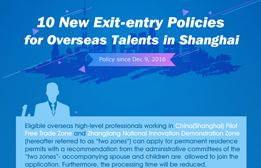The growing appeal of science in venture capital circles

Visitors observe a robot making a cocktail during the WAIC 2021 in Shanghai. [Photo provided to China Daily]
Scientists are becoming more and more popular with venture capitalists and an increasing number of scientists are becoming professional investors.
According to Qu Yi, founder of the Xinze Incubator in Zhangjiang, a high-tech hub in Pudong New Area, Shanghai, about 10 percent of entrepreneurs who have settled in the Zhangjiang Science and Technology Park over the past three years are scientists from renowned scientific institutes. Previously, such entrepreneurs were rare.
At the end of last year, Westlake University Capital was registered as a private equity and venture capital fund manager by the Asset Management Association of China. The equity investment company is a wholly-owned subsidiary of Westlake University. Such a special status is rarely seen in the venture capital circle.
Xu Tian, vice president of Westlake University, said the best solution to promoting "paper to money" is to allow scientists to concentrate on research, and to equip them with an innovation platform. He noted that the only motivation for the university to become a venture capital fund manager was to allow more tech developments by scientists to become a reality.
Since the beginning of this year, Shanghai Jiao Tong University has commercialized nearly 60 scientific and technological achievements. Investors had contacted teachers, experts, and professors of the university to invest in many of the projects.
Various signs indicate that an entrepreneurial era belonging to scientists has arrived.
The foresight to invest
The "phase transition" of biological macromolecules is an emerging and popular research field in biochemistry and cell biology. A team from the School of Life Sciences of Tsinghua University recently published a paper on Nature, revealing the regulatory factors for a kind of in vivo "liquid-liquid demixing" phase transition.
"Phase transition disorders are the pathological causes of some diseases. Many scientists hope to re-examine related diseases through the perspective of phase transitions, or interfere with abnormal phase transitions to achieve the purpose of treating diseases," wrote the team in a popular science article about why phase transition is currently a topic of concern.
However, to the surprise of the research team, investors were attracted when the concept was still in the nascent stages. This was made possible courtesy of Qu's efforts to attract investment. Qu explained that Xinze Incubator's latest incubation concept is "to invest in scientists". For this reason, she often attends lectures and forums of universities and scientific research institutes to search for the most cutting-edge scientific and technological achievements. She also makes friends with frontline scientists and encourages them to transform their papers into technology products for the benefit of society.
There are three major "pain points" for scientists to start a business: the cost of scientific research before productization, the physical space of industrialization, and the tedious tasks of establishing a company.
"We'll handle those, and the scientists only need focus on innovation," she said.
After deciding to invest in Tsinghua University's "phase transition" research team, Xinze Incubator quickly contacted Shanghai Medicilon, a leading domestic biomedical CRO (contract research and development organization) listed on the Shanghai Stock Exchange's sci-tech innovation board, also commonly known as the STAR Market, to help scientists complete a large number of experiments during the proof-of-concept phase.
Xinze also set aside a high-level laboratory with high-end equipment for the project and promised to provide scientists with free services for personnel, financial, tax, and administrative matters required to establish a company.
Xu Tian once served as the chairman of the scientific committee of the Rosberg Incubator, a world-renowned technology business incubator. He said that as the process of bringing scientific and technological achievements from the laboratory to the market becomes shorter, boosters such as business plans, funds, patents and legal affairs have become more and more important. The key to the success of entrepreneurial incubation is to find the right scientists and equip them with an external platform that allows them to concentrate on research.
Finding a high-quality scientist is equivalent to finding a good project
Shanghai Meine Energy Technology Co Ltd, a high-tech enterprise specializing in early warning and positioning of energy and power equipment failures, is preparing to for its listing on the STAR Market.
Jiang Xiuchen, the founder of the company and the director of the National Energy Smart Grid R&D Center of Shanghai Jiao Tong University, has been involved in power equipment status monitoring, intelligent perception, and early warning and positioning of equipment failures for more than 10 years. At the beginning of 2018, an investor approached Jiang and expressed strong interest in his research. The two sides eventually established the company.
Xu Kai, a professor at the School of Mechanical and Power Engineering of Shanghai Jiao Tong University, has also felt the growing enthusiasm from investors. The single-hole endoscopic surgical robot developed by his team is known as China's "Da Vinci surgical robot". The robot's four robotic arms are in a tube and can be separated after the tube is extended into the patient's body. At present, the product has entered the clinical stage and has been trialed in many hospitals across the country.
"Success once in the laboratory is considered a success, and failure once in the market is considered a failure," said Xu Kai, pointing out the difference between doing research and making products.
"If there is no investor intervention, the product will not be produced so quickly".
Today, there is no shortage of funds but good projects are difficult to find. Finding promising projects and investing in scientists who are at the top of the scientific and technological achievements transformation chain has become a priority among those in the venture capital circle.
Liu Qunyan, director of the Technology Transfer Office of the Science and Technology Development Research Institute of Shanghai Jiao Tong University, said that the number of teams coming to the school to look for investment projects has increased since 2018. This year, Shanghai Jiao Tong University has already turned about 60 projects worth more than 360 million yuan ($55.48 billion) into reality, far more than what was achieved in the same period last year.

 Print
Print Mail
Mail




